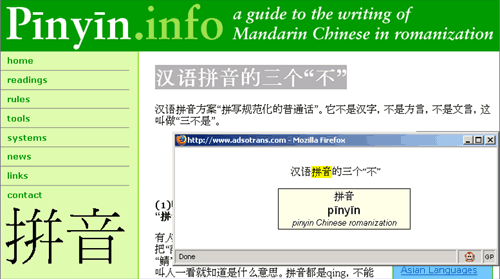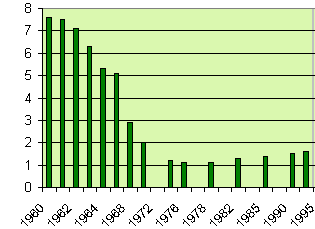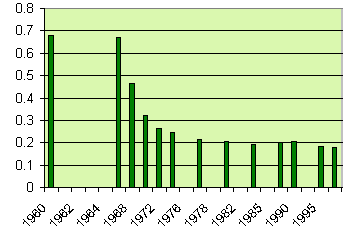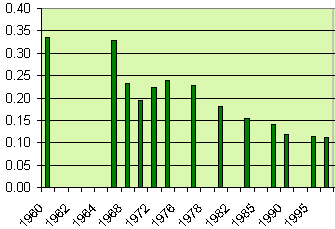Sino-Platonic Papers has just released online its first compilation of book reviews. Here is a list of the books discussed. (Note: The links below do not lead to the reviews but to other material.)
Invited Reviews
- J. Marshall Unger, The Fifth Generation Fallacy. Reviewed by Wm. C. Hannas
- Rejoinder by J. Marshall Unger
- Hashimoto Mantaro, Suzuki Takao, and Yamada Hisao. A Decision for the Chinese Nations — Toward the Future of Kanji (Kanji minzoku no ketsudan — Kanji no mirai ni mukete). Reviewed by Wm. C. Hannas
- S. Robert Ramsey. The Languages of China. Reviewed by Wm. C. Hannas
- James H. Cole, Shaohsing. Reviewed by Mark A. Allee
- Henry Hung-Yeh Tiee, A Reference Grammar of Chinese Sentences. Reviewed by Jerome L. Packard
Reviews by the Editor
- David Pollack, The Fracture of Meaning
- Jerry Norman, Chinese
- N. H. Leon, Character Indexes of Modern Chinese
- Shiu-ying Hu, comp., An Enumeration of Chinese Materia Medico
- Donald M. Ayers, English Words from Latin and Greek Elements
- Chen Gang, comp., A Dictionary of Peking Colloquialisms (Beijing Fangyan Cidian)
- Dominic Cheung, ed. and tr., The Isle Full of Noises
- Jonathan Chaves, ed. and tr., The Columbia Book of Later Chinese Poetry
- Philip R. Bilancia, Dictionary of Chinese Law and Government
- Charles O. Hucker, A Dictionary of Official Titles in Imperial China
- Robert K. Logan, The Alphabet Effect
- Liu Zhengtan, Gao Mingkai, et al., comp., A Dictionary of Loan Words and Hybrid Words in Chinese (Hanyu Wailai Cidian)
- The Mandarin Daily Dictionary of Loan Words (Guoyu Ribao Wailaiyu Cidian)
- Shao Xiantu, Zhou Dingguo, et al., comp., A Dictionary of the Origins of Foreign Place Names (Waiguo Diming Yuyuan Cidian)
- Tsung-tung Chang, Metaphysik, Erkenntnis und Praktische Philosophie um Chuang-Tzu
- Irene Bloom, trans, ed., and intro., Knowledge Painfully Acquired: The K’un-chih chi of Lo Ch’in-shun
- Research Institute for Language Pedagogy of the Peking College of Languages, comp., Frequency Dictionary of Words in Modern Chinese (Xiandai Hanyu Pinlyu Cidian)
- Liu Yuan, chief compiler, Word List of Modern Mandarin (Xianhi Hanyu Cibiao)
- The Editing Group of A New English-Chinese Dictionary, comp., A New English-Chinese Dictionary
- BBC External Business and Development Group, Everyday Mandarin
This is SPP no. 8, from February 1988. The entire text is now online as a 4.2 MB PDF.




